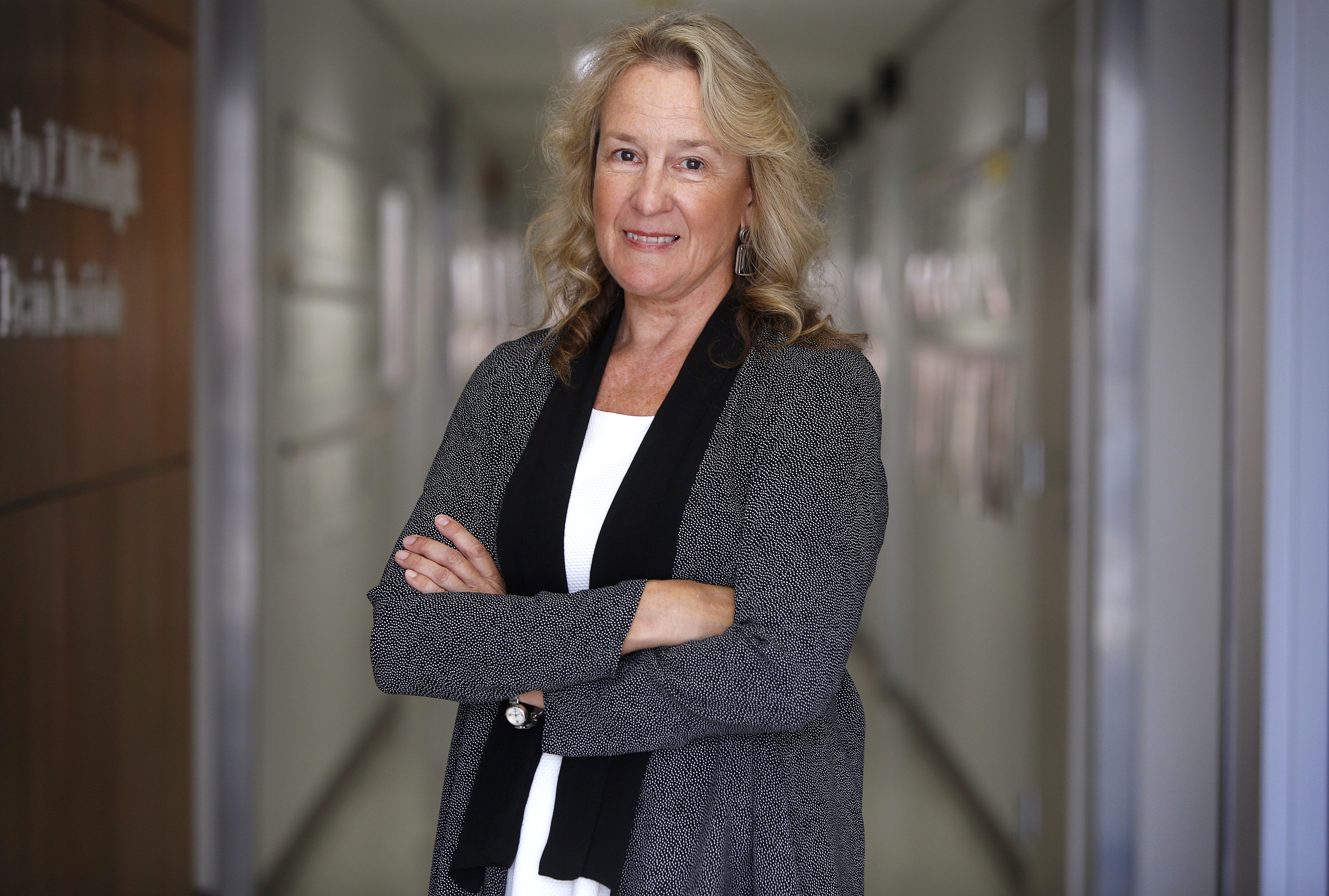Brain Awareness Week at UF spotlights minimizing memory loss in aging
 How can we improve the quality of life of older adults by mitigating memory changes?
How can we improve the quality of life of older adults by mitigating memory changes?
That is the goal of researchers who are working to better understand changes in brain circuits that occur with the aging process.
In a recent lecture at the Evelyn F. and William L. McKnight Brain Institute of the University of Florida, Carol Barnes, Ph.D., delved into her team’s research aimed at extending the cognitive health-span of older adults.
“This is a really exciting era,” Barnes said at the fourth annual William G. Luttge Lectureship in Neuroscience, part of UF’s Brain Awareness Week celebration scheduled March 14-19. “We will be able to figure out ways to optimize cognitive health throughout life.”
Sponsored by the McKnight Brain Research Foundation, the Luttge Lectureship is a tribute to the late visionary neuroscientist William G. “Bill” Luttge, Ph.D., founding director of UF’s Brain Institute.
In her lecture titled “Aging is not a disease: normal lifespan changes in brain circuits critical for memory,” Barnes described how age-related memory changes occur in animals of various lifespans, and she debunked a misconception that cells degenerate in normal aging. Rather, there’s a change in connections between cells, she said.
Barnes said the institute she directs, the Evelyn F. McKnight Brain Institute at the University of Arizona, is collaborating with its partner McKnight Brain Institutes at UF and the universities of Miami and Alabama to better understand how brain circuits that play an important for behavior are affected by aging.
Researchers have learned, for example, that “spatial navigation,” or using cues to navigate in an environment, is impaired in older animals and people.
This impairment differs from those associated with the networks vulnerable in Alzheimer’s disease, Barnes said. “This favors the idea that while normal aging and Alzheimer’s disease can co-occur, they are different processes,” she said.
There is also a reduced ability in normal aging to discriminate between objects with similar features, Barnes said.
The challenge for researchers now, she said, is to find solutions — such as pharmacological approaches — to keep people functioning at high levels throughout their lives.
About the author
